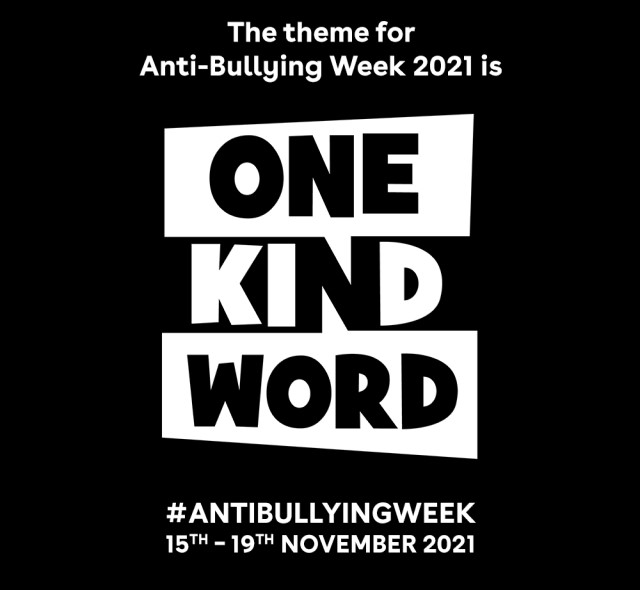- UNIFORM BY SCHOOL
- Girls School Uniform
- Boys School Uniform
- Skirts
- Boys Trousers
- Girls Trousers
- Polo Shirts
- Blouses
- Shirts
- Blazers
- PE Kit
- Clearance


Girls School Uniform


Boys School Uniform


FREE delivery - Ends Monday at Midnight
(X)







Bullying is something all parents worry about. It can manifest in so many different ways, and nowadays with social media, it isn’t left behind at the school gates.
Anti-bullying week is taking place from Monday 15th to Friday 19th November this year and has the theme of ‘One Kind Word’.
But first, here’s a recap on what to look out for if you think your child is being bullied, or unfortunately taking part in bullying behaviour.
Signs to spot
We produced this helpful guide last year with the signs to spot if you think your child is being bullied. The main things to look out for can include a change in enthusiasm for school or social actives, being withdrawn or acting out of character. Physical signs can include unexplained injuries or damaged clothing and with most teenage children having a mobile phone nowadays, look out for them being secretive about messages or hiding their screen when you’re nearby.
How can you help?
As hard as it can be for children to open up, it’s important you try to gently speak to them about it. Have they fallen out with their friendship group recently? Have they dropped hints that other kids are being mean? Don’t barge into the school like a steamroller on assumption alone. Try and gather as many facts as possible before you approach the school, and ask if they’re aware of any potential situation so they can look out for it too.
What to do if you think your child is bullying someone
Parents will naturally worry about their children being bullied, but what do you do if you think or find out your child is the one who’s doing the bullying?
There are steps you can take to help in this situation. It’s natural sometimes for friends to fall out, but make sure that they’re not excluding or doing or saying hurtful things to others. They might not realise that it’s bullying behaviour and you need to make it clear what that can entail.
Sometimes kids are influenced into bullying behaviour by friends or their peer group. They might be scared to stand up to others so you need to help them realise that no-one has the right to pressure them into joining in on bullying behaviour. You can find further information on how to deal with this on the Anti-bullying Alliance’s website.
This year’s campaign
The last year and a half has been tough for everyone. We’ve seen acts of kindness on the TV, from postmen who’ve dressed up in fancy dress to cheer people up along their round, people looking out for their neighbours who’ve had to self-isolate, to seeing Captain Sir Tom walk all those steps in his garden to raise money for charity. Among all the doom and gloom, these stories have helped us appreciate friendship and kindness more than ever.
The Anti-Bullying Alliance asked over 400 young people, teachers and parents what they wanted from this year’s Anti-Bullying Week, and they responded with how they wanted to focus on hope and the positive and kind things we can do.
They’re kicking off the week with Odd Socks Day on Monday 15th. All kids need to do is wear odd socks to school with normal uniform, or if you’re a parent, to work for the day. Why odd socks? It’s a simple yet effective way to show we’re all unique and different and we can be kind by respecting each other’s individuality.
To show kindness is infectious. If someone says something kind to you, you may want to pass that on to someone else and uplift them. By taking a moment to say something kind you can stop the cycle of negativity and any possible future bullying.
Anti-Bullying Week is coordinated In England and Wales by the Anti-Bullying Alliance.
Trutex also supports The Diana Award’s Antibullying Ambassador training, where schools can take part in free Anti-bullying training for their pupils. For more information visit https://www.antibullyingpro.com/

